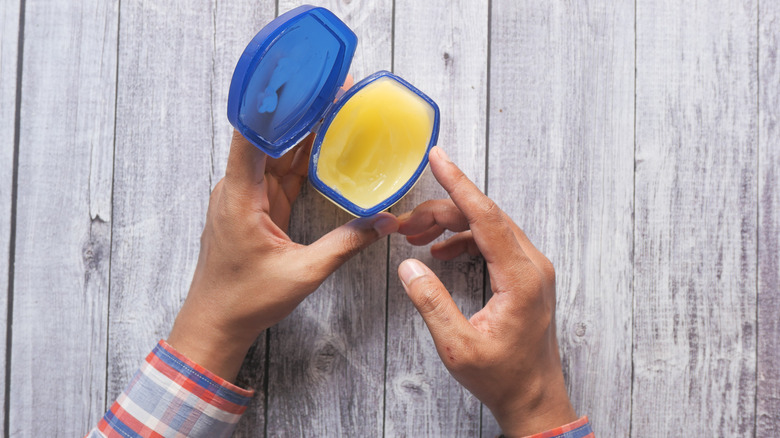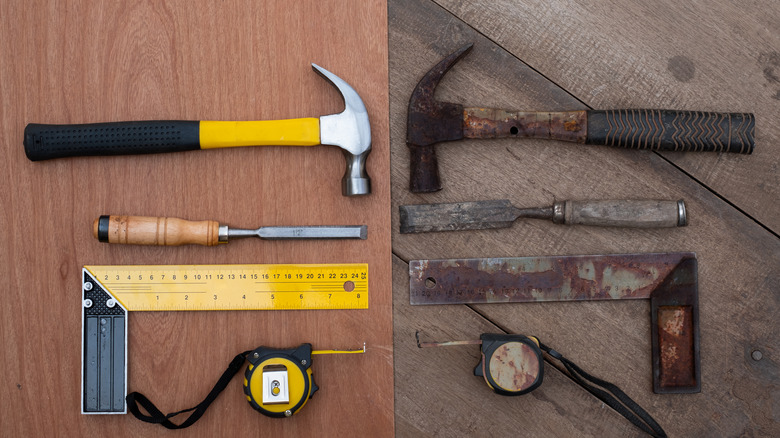The Petroleum Jelly Hack That Helps Prevent Rust
If you're prone to think of petroleum jelly as old-fashioned, there's a good reason: It was first discovered in 1859 and developed into a commercial product in the following decades. The crucial component is petrolatum, a lubricating substance used for oil drilling. So yes, it is related to petroleum products. In fact, the terms petrolatum and petroleum jelly are sometimes used interchangeably, even though the latter also contains mineral oils and waxes.
While petroleum jelly isn't as common as it once was for cosmetic use, it's still an effective way to treat dry skin, as noted by the Cleveland Clinic. Dry skin applications range from soothing chapped hands in the winter to smoothing dry heels for sandal-ready feet in the summertime. It is also useful for blocking moisture. For example, it can be applied to minor burns or scrapes after thoroughly cleaning and disinfecting to protect them and encourage healing. But did you know its moisture-blocking property also works on metal to prevent rust?
Preventing rust with petroleum jelly
If you've ever stowed metal items in a damp area, you don't need a reminder that rust never sleeps. One day everything's all shiny and new; the next thing you know, all your metal stuff is a rusty mess. This happens when alloys containing iron are exposed to moisture, resulting in iron oxide, better known as rust. Rust can get so bad that nuts and bolts can become permanently melded together, rendering various tools useless.
You can make a preemptive strike against rust, however, by slathering petroleum jelly on metals exposed to rain, water sprinklers, or other sources of moisture. How does that work? Petrolatum forms a sealing barrier effective against water. This means you can effectively hinder rust if you coat clean metallic surfaces with an even layer of petroleum jelly before placing them outdoors or after use in moist areas.
If you don't already have this type of product in your first aid kit or medicine cabinet, it can readily be purchased at your local drugstore. You'll usually find name-brand petroleum jelly on store shelves, but store brands are often less expensive and can provide the same protection against rust.
Items you can protect from rust with petroleum jelly
It sounds a bit cliché to say the uses are endless, but many metal objects can be protected from rust with petroleum jelly. Some of the more obvious candidates are various tools used for gardening or home improvement. One caveat, though, is the slippery nature of this remedy. That may not be the best choice for all-metal tools like wrenches since they need to be gripped securely while using them. However, if your tools have wooden or rubber grips, you can coat the metal parts without worry.
Another handy application for preventing rust with petroleum jelly is hardware like nuts, bolts, screws, and hinges. Since rust can attach nuts and bolts so severely that they may need to be cut to remove them, this is a particularly good preventative measure to consider. Simply apply the jelly to the threads of a bolt and on the entire nut before tightening it. It's even suggested for use on recreational vehicle hardware, as RV Magazine noted. Anywhere you typically see rust on metal, it won't hurt to try this low-cost solution. If it doesn't quite do the trick, you can up your game and buy a product specifically formulated for rust prevention.


